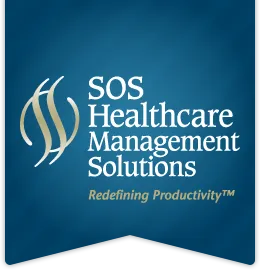Having pleasant and competent staff members is one of the most valuable assets a practice can have so the method of choosing them should not be done so with minimal effort on your part. Remember, when you hire someone, your intent should be to hire for keeps. Not only is high staff turnover not very reassuring to your patients, it can turn the proficiency of the office upside down. Each time you go through the process; you undoubtedly face both an emotional and financial beating (via stress on doctors and existing staff due to lost time and work, advertising costs, recruiting, time to train new personnel, etc.) perhaps without even realizing it. One of the most crucial steps to hiring is the actual interview. Find out as much as you can about your applicants so that you can make the right hiring choice. Here are some fundamental tips to keep in mind:
- Don’t only ask (closed-ended) questions that can be answered with a simple “yes/no” response. Instead, ask (open ended) questions that begin with Who? What? Where? When? Why? and How? to get your applicant to “open up” and speak freely and give further details about about a particular topic. The more they talk, the more you get to know them.
- They might expect you to ask them for 3 words that define their character, however, in my opinion, the best question to start off an interview with is… “You’ve got 3 minutes. Tell me about yourself.” Besides learning more about the person (they end up sharing more than you are legally allowed to ask, like whether or not they are married, have children, their age, etc.) you also get to see their presentation and time management skills in action.
- Also consider some “out of the box” questions – not for the purpose of tricking them…but to honesty find out more about their thinking patterns. One such question might be…”Why should I NOT hire you?” or “If I ran into your former employer at a cocktail party, what would he tell me about you that he might not tell me under different circumstances?”
- Remember to avoid the discriminatory questions you are legally prohibited from asking! Do you know what they are? SOS will send you a list of these questions if you email [email protected]
- While one tends to focus mainly on skill and experience listed in their resume, the characteristics you should concentrate on are likely not there in writing: namely, attitude and personality. If they fall short of job skill, they can always be trained; however a leopards spots do not change and better to know what those spots are earlier...than later.
- Realize that applicants prepare to be on their best behavior during the interview and many come armed with “rehearsed responses”, so you need to weed through that pseudo-exterior and get down to the nitty-gritty. The best way to do that is through interactive role playing. During the face-to-face interview, present the applicant with a typical patient scenario, for example, a patient who complains of waiting too long in the reception room or one who presents with a bill he/she thinks is totally unfair. Instead of asking your applicant just to explain how they would handle the situation, put them in it. Pretend you are the patient and give them a hard time. As you do, observe the applicant’s behavior as they handle these types of delicate situations. As a patient, did you feel they treated you fairly, sincerely apologized, took responsibility (instead of blaming someone else) for the occurrence, tried to diffuse anger and avoid conflict, took action to solve the problem; and offered alternate solutions? Remember the words of Yogi Berra, who said, “You can observe a lot by watching.” As silly as it sounds, he makes a valid point.
- Early into the interview process – let your staff meet the candidate. Since they are the ones that must also work side by side with your prospective employee, it would be nice to know there is not a clash in personalities. Believe me, without their “blessing”, it is a recipe for disaster.
- Don’t get so hung up on impressive letters of recommendation! They could be written by the applicant’s best friend, or by a former employer who can’t wait until this person is out of his or her employ and will go so far as to write them a flattering letter just to get rid of them.
- Ask them to take a 5-10 minute aptitude test that details certain skills associated with the job requirements, e.g., ability to properly and alphabetically file, spell, grammar, attention to detail, simple math, keyboarding, handling money, etc.
- Don’t settle or hire out of desperation. You deserve better than that! Set your benchmarks high…against the “best you’ve ever seen” and interview to that end.
- If your salary philosophy is to pay as “little” as you can, you can pretty much expect “little” in return.
- Clarify job assessment (necessary duties, skills, compensation, etc.) and have a written job description ready to review with the applicant.
- Call a favorable applicant back for a second interview if you are unsure or still have some follow up questions. A second interview can reveal much more about the individual that you may have missed the first time.
- If you’ve narrowed the applicant pool down and still have not decided if he/she is the perfect fit…take him/her to lunch. The way that they treat service people will likely be similar to the way they treat your patients. It’s particularly interesting because they do not see this as part of the interview and with their protective guard down you may just see a different side of them.




